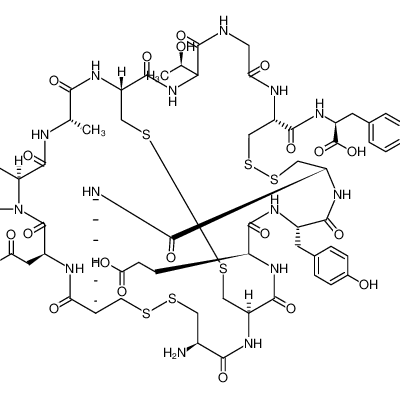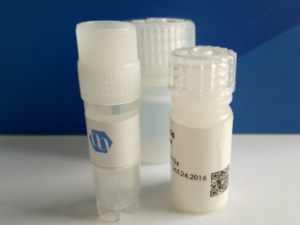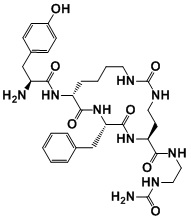Neuropeptides are the largest and most diverse group of endocrine signaling molecules in the nervous system. These signaling peptides are critical for initiation and regulation of numerous physiological processes such as feeding, reproduction and development. Neuropeptides become ‘active’ when the nervous system is challenged, e.g., by stress, injury, drug abuse, or neuropsychiatric disorders with genetic, epigenetic, and/or environmental components. The unsuspected number of true neuropeptides and their cognate receptors provides opportunities to identify novel targets for the treatment of both central and peripheral nervous system disorders. Peptide hormones are hormones made up of amino acid chains that primarily have an effect on the endocrine system. The presence of amino acids in peptide hormones allows them to act on the surface of target cells via secondary messengers. The endocrine system is composed of many different glands, and it can be divided into two categories: classical and non-classical. In the endocrine system, hormones are secreted into the circulatory system where they are distributed throughout the body, regulating bodily functions. The classical endocrine glands include the pituitary gland, pancreas, thyroid gland, adrenal cortex and medulla. The primary function of these glands is to manufacture specific hormones. Non-classical endocrine glands include the heart, hypothalamus, kidneys, liver and the gastrointestinal tract. Many of the classical hormones are controlled by the hypothalamus and pituitary, which can also be classified as being an extension of the nervous system. Peptide hormone therapeutics are of great interest as components of ‘pre-built’ drugs that the human body has already created and responds to.
Showing 1–36 of 110 resultsSorted by latest
-

Linaclotide
$ 300.0 Add to cart -

Ziconotide Acetate
$ 500.0 Add to cart -

Vosoritide , acetate
$ 500.0 Add to cart -

Vosoritide
$ 450.0 Add to cart -

Ziconotide Acetate
$ 3,200.0 Add to cart -

Seraspenide
$ 300.0 Add to cart -

Thymosin α1
$ 450.0 Add to cart -

Abaloparatide(ABL)
$ 510.0 Add to cart -

KE108
$ 800.0 Add to cart -

PTH(1-34)
$ 360.0 Add to cart -

Nociceptin
$ 360.0 Add to cart -

Neuropeptide S
$ 420.0 Add to cart -

Neuromedin U-25
$ 540.0 Add to cart -

Kisspeptin-10
$ 300.0 Add to cart -

α-MSH
$ 300.0 Add to cart -

(Gly14)-Humanin
$ 540.0 Add to cart -

Humanin
$ 540.0 Add to cart -

Galanin (1-15)
$ 360.0 Add to cart -

Galanin
$ 480.0 Add to cart -

Huntingtin 1–17
$ 360.0 Add to cart -

Semax
$ 300.0 Add to cart -

Enterostatin
$ 300.0 Add to cart -

Leu-enkephalin
$ 480.0 Add to cart -

Atilmotin
$ 1,080.0 Add to cart -

Biphalin
$ 480.0 Add to cart -

Met-enkephalin
$ 480.0 Add to cart -

Endothelin-1
$ 360.0 Add to cart -

Beta-endorphin
$ 420.0 Add to cart -

Eledoisin
$ 300.0 Add to cart -

Dynorphin B
$ 300.0 Add to cart -

Dynorphin A
$ 360.0 Add to cart -

Cyclic ureidopeptide cUP-1
$ 1,080.0 Add to cart -

Dermorphin
$ 270.0 Add to cart -

Deltorphin II
$ 270.0 Add to cart -

Deltorphin I
$ 270.0 Add to cart